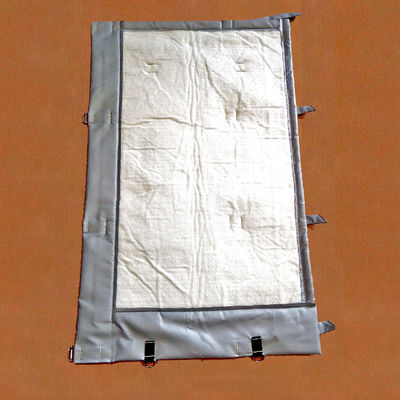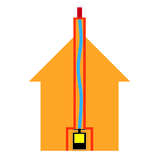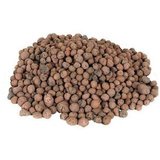Linertherm chimney liner insulation
Our Linertherm is a flexible, lightweight chimney liner insulation, ideal for using to insulate flex liner, particularly in old houses where the chimney tends to be much larger than the liner, also in external brick chimneys that are on the side of the house, with three external surfaces.
The inner layer of Linertherm insulation is made of a glass fibre felt material, the outer layer is of a strong glass fibre fabric coated with a waterproof silicone. The entire product is (as one would expect) completely non-flammable and can also withstand thermal shocks (such as liner insulation is subjected to when there is a chimney fire). Linertherm is only 12mm thick which means that it can be used on chimney liner where using rockwool sleeves would not be possible.
- Effective - Linertherm insulates the liner, keeping those flue gases hot which will improve draw and reduce the risk of chimney fire.
- Saves Time - Linertherm is easy to understand, easy to apply, easier overall installation.
Below is a table of the K-values of Linertherm. The K value represents the thermal conductivity of a material and is measured in W/mK. The lower the value the better.
|
Temperature |
50 |
100 |
200 |
300 |
400 |
500 |
|
K Value |
0.041 |
0.046 |
0.060 |
0.078 |
0.100 |
0.125 |
Installing Linertherm insulation is simple. The Linertherm sections are wrapped around the liner. Fixing straps hold the Linertherm in place. Stainless steel ties are used to hold the fixings. Once the Linertherm has been fitted to the chimney liner the liner is then either pulled up the chimney or lowered down it.
Refer to our chimney lining guide for more information on how to line a chimney.
 >
>
Linertherm comes in 1metre lengths suited to both 125 and 150mm liner. You lay your lengths out on a flat surface. As you can see regular fixing straps and two stainless steel loops come already attached and ready to go.
Ensure that there is an overlap between lengths. You will notice that the end of each length allows for this overlap as there is a wide hem at one end. Make sure that the overlaps run downwards so that any dust that may fall from the masonry chimney cannot get trapped and build up in the join.

Lay all the straps so that they run under the linertherm and appear on the other side and now lay your chimney liner on top. Start to wrap the linertherm around the liner making sure that the bottom edge tucks tightly under the top edge. Run the first strap through the first fixing loop, up between the two loops, over the top of the upper loop and then back out between the two loops.

Move along the length wrapping the linertherm around the liner and fixing the straps in place as you go. Once they are all in place move along the liner again and tighten the straps as needed.

Once you are happy tie each strap off and you can get on with the next bit of the job. Because Linertherm is light and flexible you usually have the option of pulling the liner up the chimney as well as the usual method of pulling it down.
Our chimney lining guide will give you more information on the technique for lining a chimney. If in doubt then we do recommend getting a professional in to do the work, you want it to last after all.






